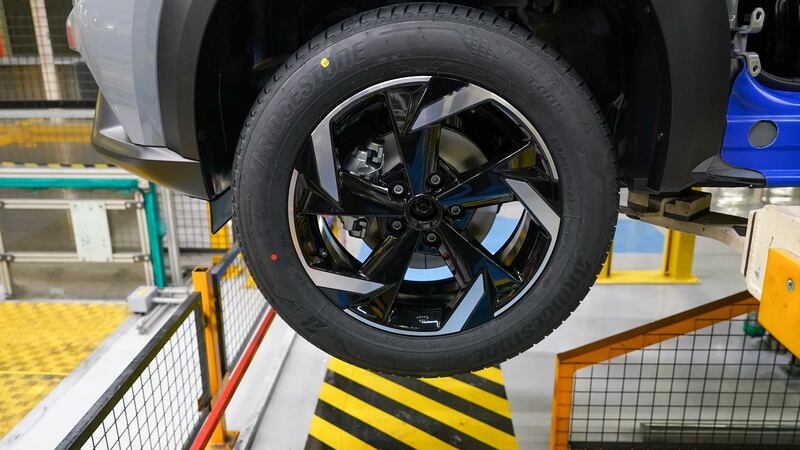These five New Year's resolutions will enhance every gardener's environmental credentials...
Stop using peat – Before Christmas it was reported that the sale of peat to gardeners is to be banned in England and Wales by 2024. The aim is to also phase its use out in the professional horticulture sector by 2028. All eyes will soon be on Stormont to follow suit. Peat is desirable as a growing medium because of its moisture retentive, free-draining, nutrient free properties but our peat bogs are also a huge carbon stores and vital habitats for wildlife. Routinely digging them up and using the peat for plants destroys these unique habitats and releases carbon into the atmosphere. An increased range of alternative products means there's no excuse for not going peat-free.
Plant a tree – At the moment there's all sorts of initiatives aimed at improving rural and urban tree cover, including urging the citizens of Belfast to plant one for posterity. Trees bought bare root at this time of year are actually quite cheap, and you may get as many as half-a-dozen for a tenner if you find the right nursery. Native species like birch, alder and ash are recommended both for price and from an environmental point of view, as they're more suited to Ireland's indigenous wildlife. Native trees also require less pampering.
Stop using weedkiller – The main ingredient in weedkillers such as Round-Up is glyphosate, which the World Health Organisation has concluded is a "probable carcinogen". Yet councils and Roads NI continue to spray this potentially harmful chemical to kill what some regard as unsightly wildflowers growing on footpaths and verges. Only in the most extreme cases, to eradicate pernicious weeds like ground elder, should glyphosate be applied in the garden. Its casual use is also harmful beneficial insects, birds and other animals, as well as damaging your soil's delicate ecology. Once your supply runs out, don't replenish it.
Start using a scythe – Regrettably there are no plans on the horizon to ban the use of ride-on lawnmowers, the favourite toy of the middle-aged man with too much time on his hands. Instead of sitting on your backside all afternoon, why not acquire yourself a scythe and transform into a desirable Poldark-type hunk over the course of a summer's cutting? The physique can't be guaranteed but if nothing else there'll be a great sense of self-satisfaction at a more environmentally-friendly grass management regime. The RHS has predicted scythes as one of its trends for 2022, as they're easier than a mower on wildflower patches and minimise the need for petrol or diesel-powered tools.
Harvest your own water – Gardeners use a lot of water to keep plants healthy and very often they require it most when it's in shortest supply. Domestic water charges have yet to be introduced here in the north but that doesn't mean our water is free – it's just that it's not metered and we can therefore use as much as we like, when there's no hosepipe ban. But this still has an environmental cost and can put pressure on reserves. Installing a water butt – or better still butts – will help reduce your reliance on mains water. Simply connect the downpipes from the roof of your home, shed or greenhouse to a large container, preferably with a tap that you can attach a hose to. The more water butts you use, the more water you save.








